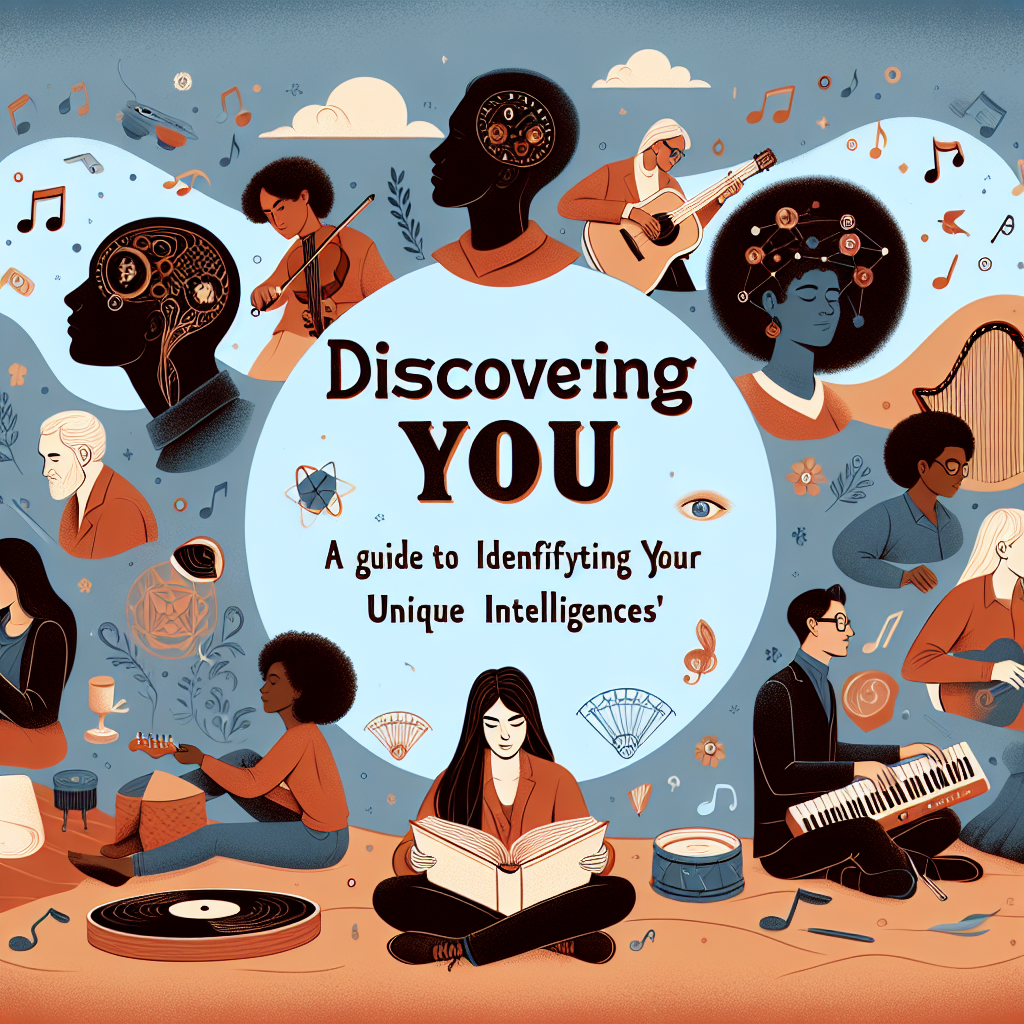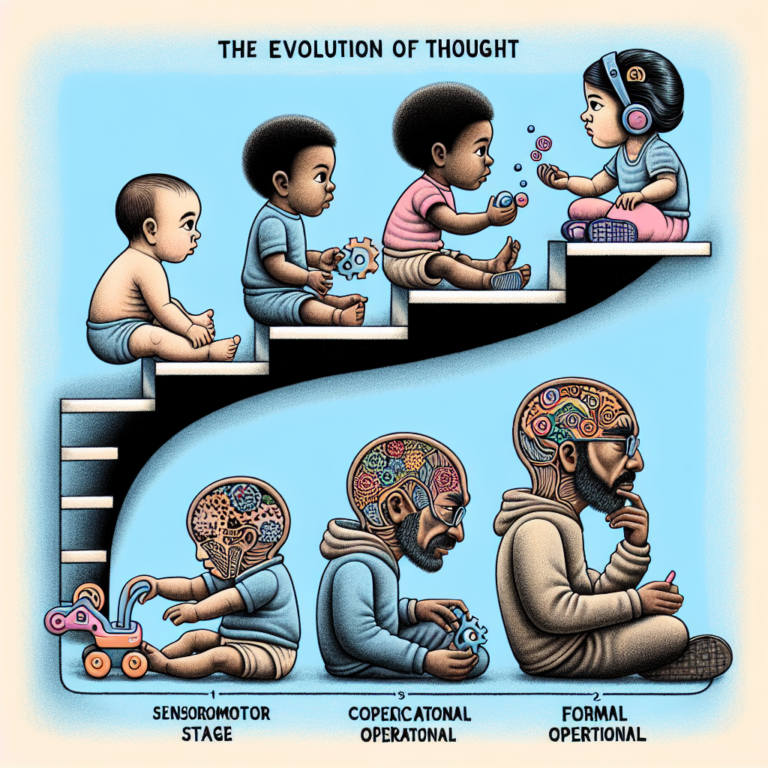
Introduction: Unearthing the Gems Within
In a world that often emphasizes a standardized notion of intelligence, it’s easy to feel lost or undervalued. Yet, as we journey through the landscapes of personal development, it becomes apparent that each of us holds a reservoir of unique intelligences waiting to be discovered. Discovering You: A Guide to Identifying Your Unique Intelligences aims to illuminate these diverse facets of intelligence, offering insights that are not just informative but transformative.
Imagine you’re a diamond miner, sifting through dirt and debris only to find dazzling gems hidden beneath. That’s exactly what understanding your unique intelligences can feel like. By recognizing the various types of intelligence you possess, you can leverage them to enhance your professional and personal life, leading to greater fulfillment and success.
The Roots of Intelligence: A Broader Perspective
What is Intelligence?
Traditionally, intelligence has been narrowly defined through IQ tests and academic performance. However, renowned psychologist Howard Gardner’s Theory of Multiple Intelligences has propelled us into a realm where intelligence is multifaceted. Gardner identified various types such as:
- Linguistic Intelligence: The ability to use language effectively.
- Logical-Mathematical Intelligence: The capacity for logical reasoning and problem-solving.
- Spatial Intelligence: The skills to visualize and manipulate spatial relationships.
- Musical Intelligence: The talent for discernment in rhythm, pitch, and timbre.
- Bodily-Kinesthetic Intelligence: The use of one’s body to solve problems or create products.
- Interpersonal Intelligence: The ability to understand and interact well with others.
- Intrapersonal Intelligence: The capacity for self-reflection and self-awareness.
- Naturalistic Intelligence: The ability to recognize and categorize plants, animals, and other aspects of the natural world.
Understanding this broader definition is the first step in Discovering You: A Guide to Identifying Your Unique Intelligences.
The Importance of Recognition
Recognizing your unique intelligences is essential for personal growth. It impacts:
- Career Choices: Aligning your career path with your intelligences can lead to greater job satisfaction.
- Learning Styles: Understanding how you learn best helps facilitate effective study and work strategies.
- Relationships: Enhancing interpersonal intelligence improves both personal and professional relationships.
Case Study: The Transformative Power of Understanding Intelligences
Consider Sarah, a graphic designer with a strong spatial intelligence. After being encouraged to take an intelligence assessment, she discovered her strength was not only in design but also in visual storytelling. By leveraging this insight, she began incorporating narratives into her client work, enhancing her portfolio and solidifying her reputation in the industry.
Table 1: Types of Intelligence Overview
| Type of Intelligence | Description | Real-world Application |
|---|---|---|
| Linguistic | Language mastery | Writing, public speaking |
| Logical-Mathematical | Reasoning and problem-solving | Science, engineering |
| Spatial | Visualizing and manipulating space | Architecture, art |
| Musical | Understanding rhythms and patterns | Music production, theatre |
| Bodily-Kinesthetic | Physical coordination and control | Sports, dance |
| Interpersonal | Understanding others’ emotions | Psychology, counseling |
| Intrapersonal | Self-awareness and introspection | Personal development |
| Naturalistic | Understanding the natural world | Environmental science |
Discovering Your Unique Intelligences
Reflective Practices: The First Step
Engaging in reflective practices can help you uncover your intelligences. Here are some actionable steps:
Journaling: Write about your passions and interests. What activities make you lose track of time?
Feedback from Others: Seek feedback from friends, family, or colleagues. What strengths do they see in you?
- Personality and Intelligence Assessments: Utilize tools like the Multiple Intelligences Inventory to gain insights into your profile.
Building on Your Strengths
Once you’ve identified your unique intelligences, the real work begins in fostering and building upon these strengths.
Set Goals: Create achievable goals that utilize your dominant intelligences. For example, if you have strong interpersonal intelligence, consider roles in teamwork-focused environments.
Join Groups or Communities: Engage with others who share your intelligences to enhance your skills and network.
- Continuously Learn: Enroll in courses or workshops that challenge and develop your unique intelligences.
Case Study: The Journey of a Teacher
Meet John, a high school teacher with solid interpersonal and linguistic intelligences. He struggled to connect with his students until he began using storytelling and dialogue as teaching methods. After implementing this approach, he witnessed a remarkable increase in student engagement and performance. John’s experience illustrates that aligning one’s career with inherent intelligences can be transformative.
Table 2: Steps to Build on Unique Intelligences
| Step | Action |
|---|---|
| Goal Setting | Create specific, measurable goals |
| Join Communities | Participate in online or local groups |
| Continuous Learning | Enroll in courses that align with intelligences |
Challenges and Misconceptions
Common Myths About Intelligence
Myth: Intelligence is fixed.
Reality: Intelligence can develop over time with practice and effort.Myth: Only academic intelligence matters.
Reality: Other forms, such as emotional and creative intelligence, are equally valuable.- Myth: Identifying intelligence is only for students.
Reality: It’s beneficial across all ages and professions.
Addressing Self-Doubt
Self-doubt can be a barrier when identifying unique intelligences. Remember, everyone’s journey is distinct, and comparisons can hinder your growth. Embrace your uniqueness as a strength.
Conclusion: Embrace Your Intelligence
As we wrap up this guide on Discovering You: A Guide to Identifying Your Unique Intelligences, it’s clear that recognizing and embracing your unique intelligences can lead to profound personal and professional fulfillment. The journey toward understanding oneself is never-ending, filled with twists and turns that ultimately reinforce the notion that intelligence is not just about being ‘smart’ in a conventional sense.
Start today by taking small steps toward self-discovery and embracing what makes you truly unique. Remember, when you align your life with your unique intelligences, you unlock opportunities that resonate with who you are.
FAQs
1. How can I identify my unique intelligences?
You can start by engaging in reflective practices like journaling, seeking feedback from others, or taking intelligence assessments based on Howard Gardner’s Theory of Multiple Intelligences.
2. Is it possible to develop my intelligences over time?
Absolutely! Intelligence is not fixed. With effort and practice, you can enhance your skills in various areas of intelligence.
3. What if I have multiple strong intelligences?
Having multiple intelligences is common, and you can integrate them into your career or personal life by choosing activities that align with all your strengths.
4. How does identifying my intelligence benefit my career?
By understanding your unique intelligences, you can align your career choices and personal projects with your strengths, leading to increased satisfaction and improved performance.
5. Can I change my career after discovering my intelligences?
Of course! Many people change careers or shift focus after discovering their unique intelligences. It can lead to more rewarding career paths aligned with your true self.
In conclusion, as you embark on this journey of self-discovery, remember that Discovering You: A Guide to Identifying Your Unique Intelligences is not simply a notion—it’s an essential part of your personal evolution. Start today, embrace your strengths, and let your unique abilities shine!














